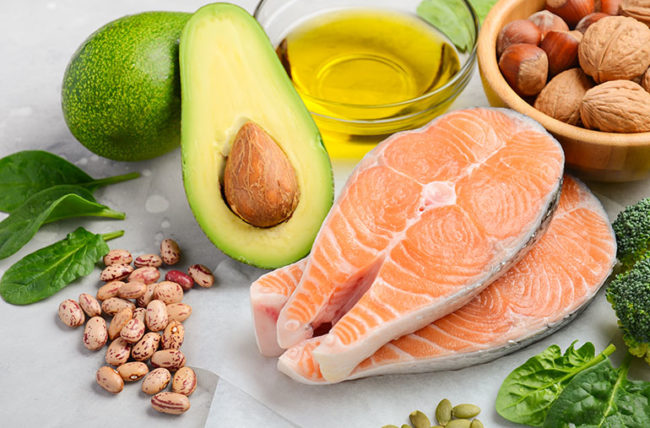Diet plays a crucial role in helping the body carry out certain functions. One of these tasks includes producing cholesterol, a fatty substance found in cells that aids in digestion and helps make hormones. Cholesterol is made up of low-density lipoprotein (LDL), high-density lipoprotein (LDL), and triglycerides. Any imbalance in these elements can trigger cholesterol-related health problems. However, making a few simple changes in the diet can reduce cholesterol.
- Avoid saturated fats
Avoid eating foods that are processed and high in saturated fats. This includes anything that is made with bacon fats, lard, coconut, shortening, cocoa butter, palm oil, and kernel. Note that all these ingredients are mentioned on product labels, so it’s easy to know what foods to avoid. While the body needs healthy fats for energy, consuming excess fats can lead to cholesterol buildup in the blood vessels. They raise LDL, which increases an individual’s risk of getting cardiovascular problems. - Eat more soluble fiber
Fiber prevents cholesterol from entering the bloodstream. So, eating naturally soluble fiber found in whole foods can help lower cholesterol levels. Regular consumption of soluble fiber has been shown to reduce total cholesterol and “bad” LDL by 5–10% in as little as four weeks. A variety of beans, fruits, vegetables, and legumes are rich in soluble fiber. Nutritionists recommend getting at least 10 grams of fiber daily. - Eat more fish
Fish are loaded with essential omega 3 fatty acids, which help maintain a proper cholesterol balance in the body. Fatty fish reduce triglyceride levels in the body and prevent the arteries from hardening. One must include more salmon, trout, tuna, mackerel, or herring in their diet. Nutritionists recommend at least two to three servings of baked, boiled, or grilled fish. - Include more healthy fats
Healthy fats help lower bad cholesterol or LDL. Nutritionists recommend including polyunsaturated fats in the daily diet. Walnuts, oily fish, and foods prepared using soybean, sunflower, or corn oils are loaded with these fats. Understand that sources of both omega 3 and omega 6 fatty acids are great for restoring cholesterol balance. - Go for lean cuts
One does not have to exclude meat from the diet completely. But they can replace fatty cuts of beef, pork, and lamb with lean chicken or turkey. The idea is to avoid red meats laced with saturated fats and switch to lean meats that don’t contain these fats in abundance. It is okay to eat a burger or steak once in a while, but it is also necessary to have a diet that includes nutrient-rich lean meats. - Avoid foods high in processed sugar
Sugary foods, baked confectioneries, and sugary beverages, like colas and sodas, should be consumed in moderation. Excess sugar forces the liver to process more LDL, thus triggering an imbalance.

